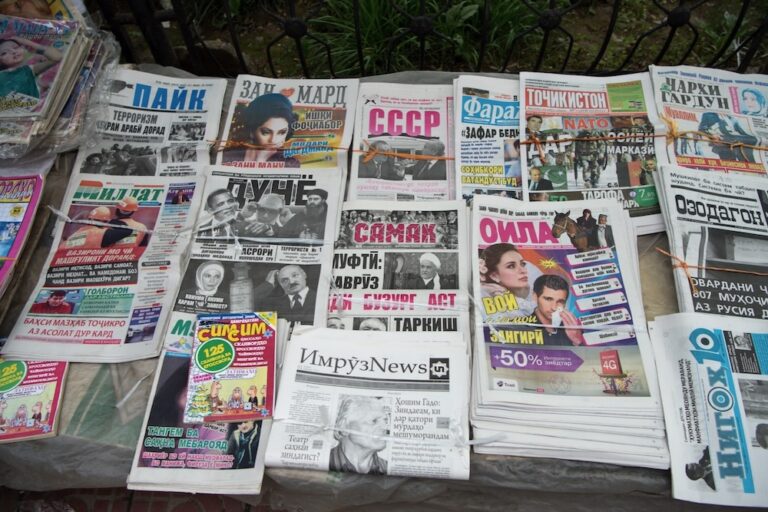A number of printing houses have cited various reasons for refusing to print "Farazh", the paper's editor-in-chief reports.
(CJES/IFEX) – 22 October 2010 – The popular Tajik independent newspaper “Farazh” has not been published for two weeks. The paper’s editor-in-chief, Khurshed Atovullo, told Ferghana.ru on 15 October the paper is not being published because printing houses are refusing to print it.
“The director of the printing house Oila Print, which has printed the paper until now and with which we have a contract until the end of this year, told me in a phone conversation that the paper prices have gone up 100% and offered us to buy paper from them at that price to get the paper printed. I made some inquiries and found that the paper prices had not changed. I told the printing house director that I would get the paper myself. However, he still said no and hinted that a tax inspection was soon expected in the printing house. After that, I talked to the administration of the Intishor printing house, and they agreed to print ‘Farazh’. Their staff even prepared the film, but they refused to work with us at the last moment. The Intishor administration simply said: ‘We can’t print it. No comment’,” Atovullo said.
The Sharki Ozod printing house has also refused to print the paper, citing technical reasons, the paper’s editor said.
According to Zafar Abdulloyev, the head of the Avesta information agency, “Farazh” is currently in the process of negotiations with international donor organizations on the provision of technical assistance with the creation of the paper’s website. Abdulloyev said Atovullo did not rule out that “Farazh” may become “a paper in exile.”
“I think this is due to pressure from certain people. This is apparently connected to the presidential decree on officials’ reaction to critical materials published by independent publications. We reported on M. Akhmadov, one of the men involved in the events in the Rasht Valley, back in 2007-2008. ‘Farazh’ was then the only newspaper that showed that the man was dangerous. However, no one reacted to our publications, although Akhmadov’s people then beat up our reporter and wanted to take him to the Rasht Valley department for the prevention of organized crimes. Now it turns out that the paper that was the first to report on danger is to blame? Isn’t that strange?” Abdulloyev said.


